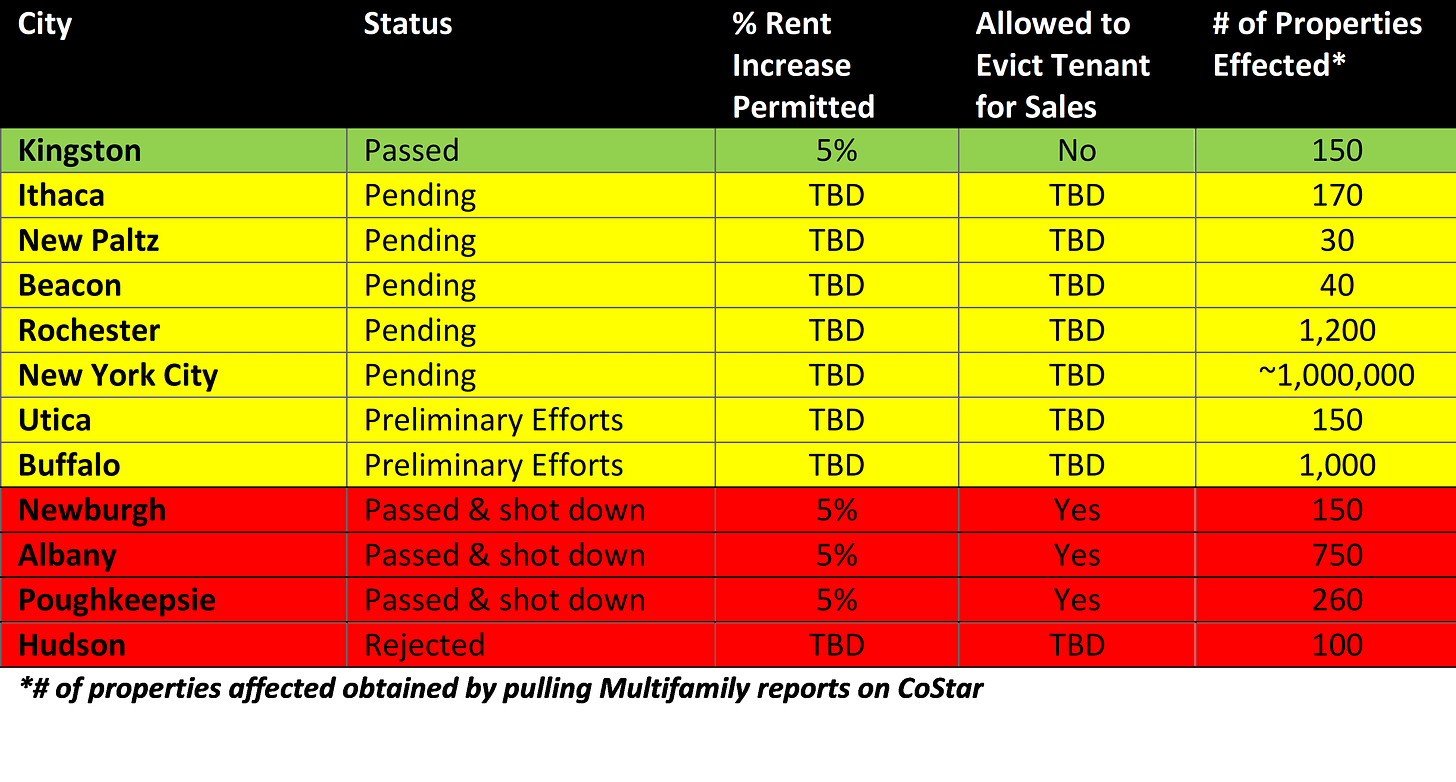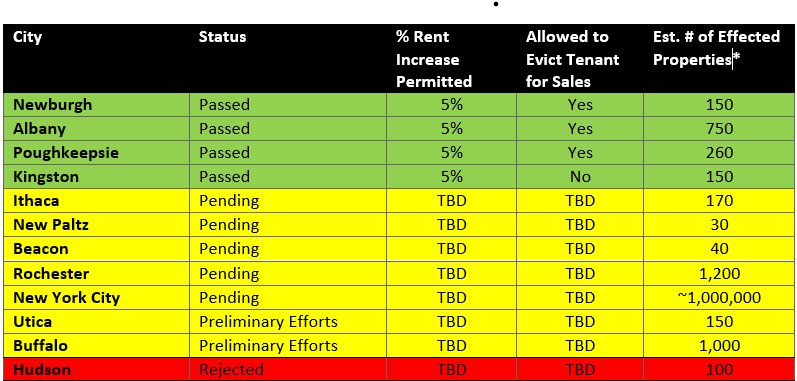Updated Good Cause Eviction Tracker - as of March 2023
The city of Saint Paul, MN approved a rent control policy that caps rent increases on current tenants to 3% annually, the strictest policy of its kind in the Midwest. Boston’s mayor-elect Michelle Wu used her campaign as a platform to express her pro rent control views and good cause legislation. These legal tussles are concerning for owners of property at-large. Now, owners of property in NY must address policy changes head on, as these regulations have come across state lines. Newburgh, Albany, Poughkeepsie, and Hudson have all passed a form of Universal Rent Control (URC). New Paltz, and Kingston are next in line to see such bills pass, as their lawmakers enter the tail end of debates and negotiation on the topics. What exactly is being proposed and will similar laws proliferate into New York City?
Most cities that have passed URC regulations follow the footsteps of the state-wide bill that was introduced January 2021 in the State Senate. The bill outlines 10 or so reasons whereby an eviction may be appropriate. When leases are up for renewal for a tenant, the housing provider would now be required to renew a lease to the tenant, subject to a yearly rent increase. Only in the event that there was a good cause for the eviction, i.e. the reason was one of the 10, will an eviction be deemed allowed. Albany, Newburgh, and Poughkeepsie allow for tenants to be removed (i.e. they don’t mandate lease renewals) if a property is to be sold. Hudson’s city legislation does not allow for this. Hudson only permits this if the owner is moving into the property him or herself. The Implementation of policies like this limit displacement of tenants (good), but it also reduces the autonomy and decision-making rights away from owners (bad). Plans for a local family to sell the property on Main Street and move cross country may have to be delayed because pricing is not what it should be to support their retirement aims. The property’s rents won’t be at market rate, and since the property is fully occupied there is no path to get there, which makes it harder for buyers to pay up.
If the URC bill makes it to New York City, it would present cause for concern for much of the housing providers in NY and the investor base that supports them. That said, here are some recommendations and tips on how it could avoid being catastrophic:
Rent increases:
Allow owners to raise rents above the allowable threshold if improvements are made to the apartments while vacant. Do not set a cap on the increase. When paired with the mandatory requirement to renew leases for tenants, this will reduce displacement, while also allowing the work owners put into properties to be rewarded with commensurate rent increases.
Tailor to supply & demand
Connect the yearly allowable rent increase to the supply of available units on the market for lease. The more apartments are available on the market, the looser the guideline on allowable rent increase should be so that housing providers can decide where on the risk/reward curve they would like to be. Risk = extended vacancy in apartment, reward = higher rent
Conflict resolution
Create a simple set of rules with limited flexibility for conflict resolution that all parties agree to, such that the issues are swiftly settled
Free market system
Do not mandate all property owners opt into Universal Rent Control, but effectively reward those that do.
Incentives and subsidies for owners
Offer rent subsidy incentives for property owners who register the rents they receive on their property to the city, in the form of tax breaks or some other easy to apply measure
Understand other markets
Look at places like Oregon and NJ and learn from how those states are working with those regulations
As a means of tracking the progress and the momentum I created a basic tracker that contains the cities in NY State that responded or are beginning to take position toward the policy. The legal scaffolding that supports individual cities codifying this policy into law is dubious, though it does speak towards the sentiment held by those municipalities.
Sources: City and State NY, Times Union
Article originally published on December 5th, 2021




